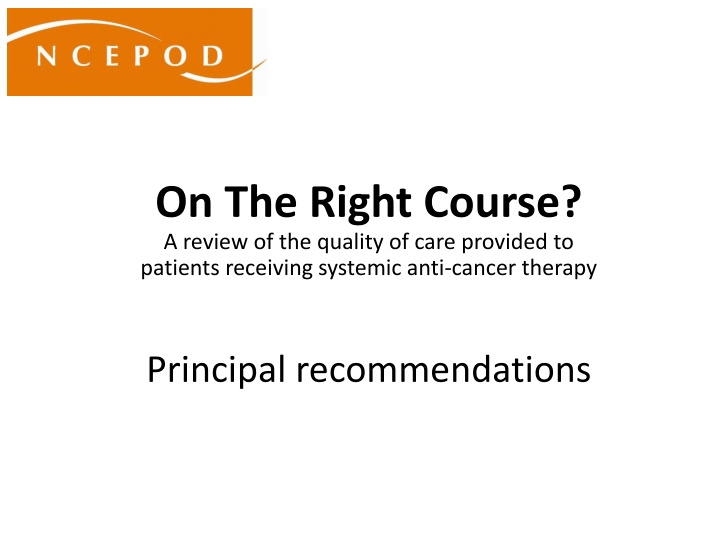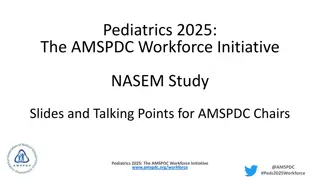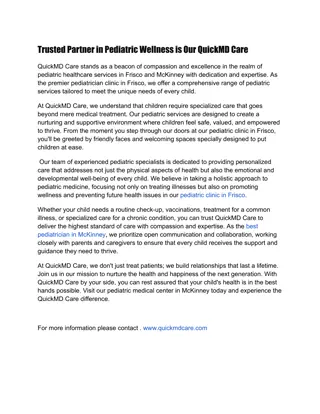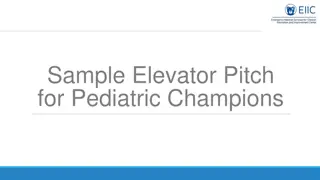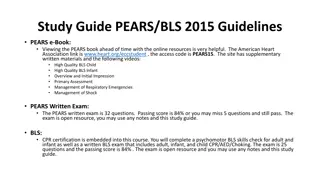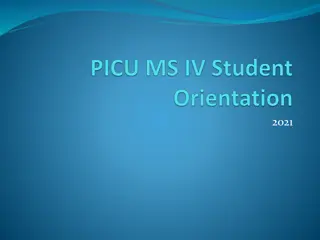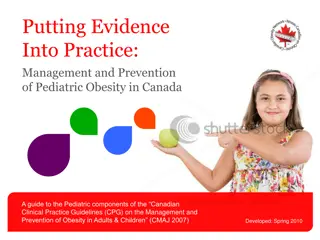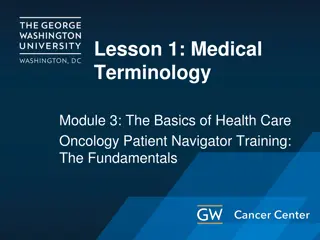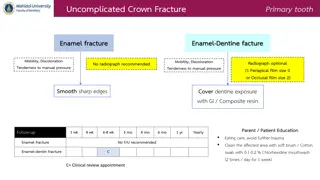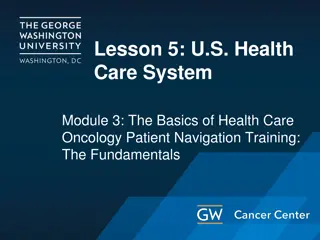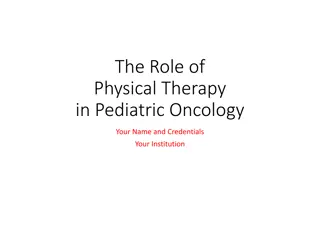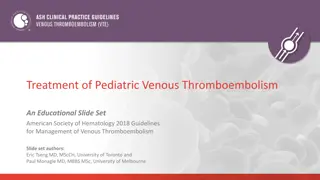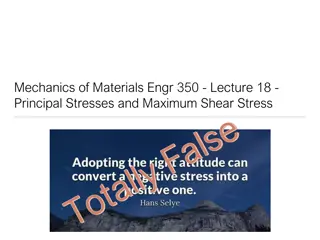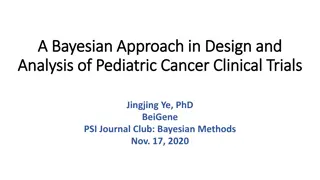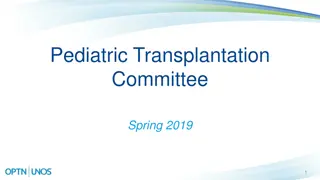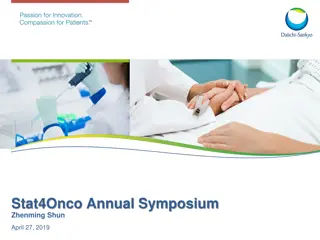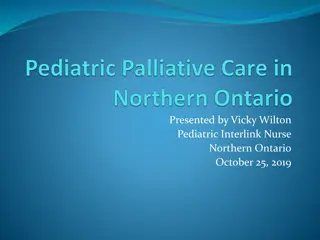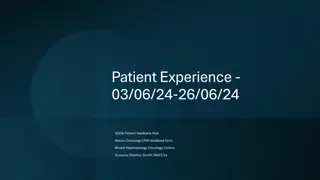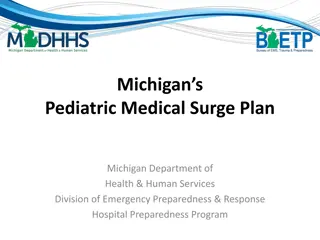Quality of Care in Pediatric Oncology: Principal Recommendations
Reviewing the quality of care for pediatric patients undergoing systemic anti-cancer therapy, this study provides key recommendations to enhance patient outcomes, including multidisciplinary treatment planning, thorough documentation of therapy discussions, and the development of a specialized consent form for such therapies. Emphasizing timely consultant review during acute admissions, the study aims to improve the overall care standards for young cancer patients.
Download Presentation

Please find below an Image/Link to download the presentation.
The content on the website is provided AS IS for your information and personal use only. It may not be sold, licensed, or shared on other websites without obtaining consent from the author.If you encounter any issues during the download, it is possible that the publisher has removed the file from their server.
You are allowed to download the files provided on this website for personal or commercial use, subject to the condition that they are used lawfully. All files are the property of their respective owners.
The content on the website is provided AS IS for your information and personal use only. It may not be sold, licensed, or shared on other websites without obtaining consent from the author.
E N D
Presentation Transcript
On The Right Course? A review of the quality of care provided to patients receiving systemic anti-cancer therapy Principal recommendations
The study Review of the quality of care provided to patients aged 24 years and under who were receiving systemic anti-cancer therapy (SACT) and subsequently died or were admitted to critical care Organisational questionnaire Clinician questionnaire: protocol of SACT Clinician questionnaire: final admission to hospital Case note review
Study population Patients aged under the age of 25 years diagnosed with a solid tumour or haematological malignancy received SACT between 1st March 2014 and 31st May 2016 died or underwent an unplanned admission to critical care within 60 days of receiving SACT
Recommendation 1 Ensure that any new protocol of systemic anti- cancer therapy, to a given patient, is discussed at a multidisciplinary team meeting, in advance of commencing treatment.
Recommendation 3 Ensure that discussions about systemic anti-cancer therapy (SACT) with patients and/or their parents are documented and include: a. the intent of therapy (curative versus palliative) b. the chances of cure or the benefits of palliative therapy c. the risk of toxicity including that SACT can be life threatening d. ceilings of treatment in patients with a poor prognosis
Recommendation 4 A nationally agreed consent form specific for systemic anti-cancer therapy should be developed and implemented. It should include: a. the intent of therapy b. an assessment of the chance of cure c. the risk of toxicity and d. the potential risk of death
Recommendation 12 Ensure consultant review within 14 hours of an acute admission in line with the Royal College of Paediatrics and Child Health in Facing the Future and the Royal College of Physicians of London in the Acute Care Toolkit 4 .
Discussion Are new protocols of SACT discussed at multidisciplinary team meetings, in advance of commencing treatment? Do we have evidence of this? Do we have discussions with patients and parents about SACT? Do we include all relevant information? Does consultant review usually happen within 14 hours of an acute admission? Do we have a policy for treatment with SACT? At what ages are assent and consent sought?
On The Right Course? On The Right Course? Full report, summary and implementation tools are be found at www.ncepod.org.uk/2018cictya.html
